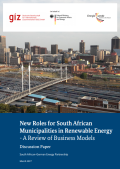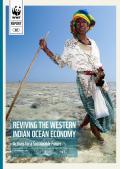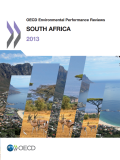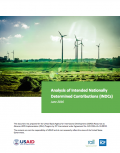
The Discussion Paper New Roles for South African Municipalities in Renewable Energy - A Review of business models reviews possible business models for South African municipalities to seize arising opportunities and minimise potential risks associated with the introduction of renewable energy technologies in the domestic electricity system. It proposes a typology of available business models for municipalities to seize emerging opportunities arising from renewable energy technologies. Three overarching roles, spilt into seven business models, are considered for municipalities: building electricity generation capacity; procuring electricity; and playing a facilitation function. Based on a three-pronged methodological framework taking into account the drivers of the business models; their techno-economic potential; and their ability to manage risks (regulatory, financial and socio-political); this report reviews each business model, highlighting their strengths and weaknesses.


This report is the first OECD review of South Africa’s environmental performance. It has been carried out as part of the OECD dialogue with South Africa as Key Partner. The report evaluates South Africa's progress towards sustainable development and green growth, with a focus on policies that provide incentives to protect South Africa's exceptionally rich biodiversity and promote more effective and efficient environmental management across different levels of public administration.
The Green Economy (GE) paradigm aims to reconcile environmental and socio-economic objectives. Policies to deploy renewable energy (RE) are widely perceived as a way to tap the potential synergies of these objectives. It is, however, still largely unclear whether the potential of simultaneously achieving both environmental and socio-economic objectives can be fully realized, and whether and how multiple objectives influence policy design, implementation, and evaluation. The paper aims to contribute to this aspect of GE research by looking at selected country experiences of renewable energy deployment with respect to the socio-economic goals of job creation or energy access. Across the cases examined, the reseachers find the following implications of relevance for the GE framework: First, they confirm the important role of governmental action for GE, with the specific need to state objectives clearly and build monitoring capacity. Second, consistent with the “strong” green growth variant of GE, some of the cases suggest that while renewable deployment may indeed lead to short-term socio-economic benefits, these benefits may not last.

This white paper provides an analysis of the Intended Nationally Determined Contributions (INDCs) for 37 partner countries in the U.S. Government's Enhancing Capacity for Low Emission Development Strategies (EC-LEDS) program and other designated priority countries. The white paper includes an overview of global INDCs, country profiles for countries, regional trends, and sectoral trends. Moreover, each country profile includes information from the INDC on the:
